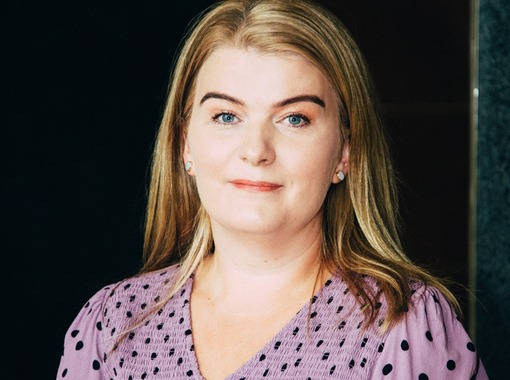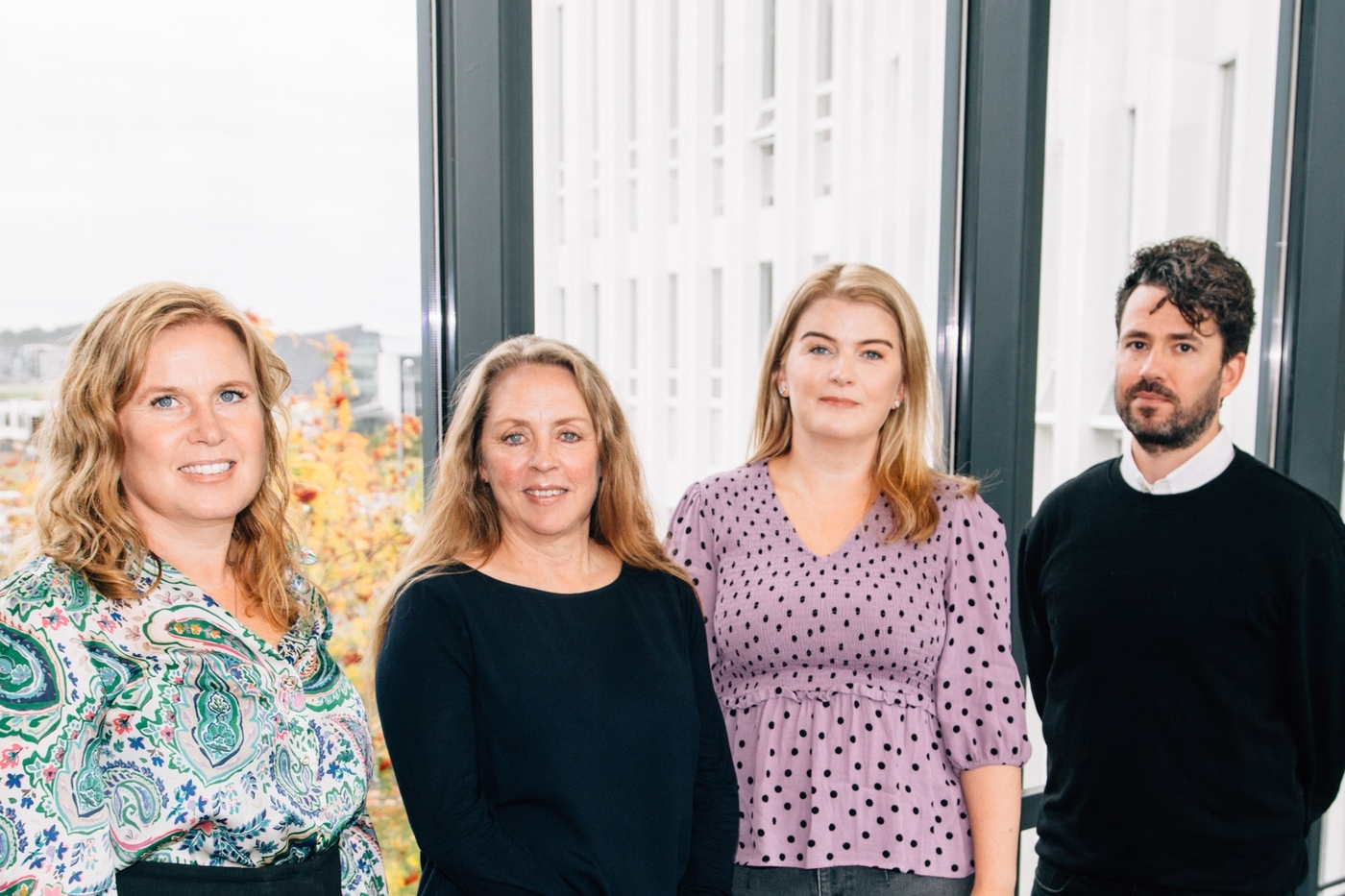Young women in Iceland experience anxiety in parenthood, and do not see how they are to live up to the ever increasing demands made on women in a society characterised by materialism, individualism and the imminent threat of climate change. At the same time, there is greater understanding in the community than before that people might choose to reject parenthood, even though women still experience hostile reactions due to such decisions. These are some of the findings in an extensive project conducted by an interdisciplinary group of academics at the University of Iceland. They seek to understand the causes for the reducing fertility rates in Iceland, and whether there is something in Icelandic policy making and parenting culture that contributes to this.
The project is called "Fertility intentions and behaviour in Iceland: The role of policies and parenting culture" (Áhrif stefnumótunar og foreldramenningar á barneignir á Íslandi) and received a grant of excellence from the Icelandic Research Fund last year. Those are the largest grants allocated in Iceland to research projects and can amount to over a hundred million krona. The excellence grants are only allocated to research projects that are likely to produce cutting edge Icelandic research on the global scene and the competition for them is fierce.
One of the project leaders is Sunna Kristín Símonardóttir, post-doc in sociology, who has studied motherhood and the different demands made on parents in Iceland from various angles ever since her doctoral studies. "My research is in the field of the sociology of gender, but touches many other fields of sociology in various ways, such as family sociology, sociology of health and class research," she says.
Fertility rates are reducing fast
Sunna points out that Iceland stood out for quite some time in the Western world as the birth rate here remained considerably higher compared to our neighbouring countries. "People in Iceland usually had more children and earlier in life. Fertility rates in Iceland have, however, been reducing fast for the last decade and the latest statistics show that Icelandic women have on average 1.82 children in their lifetime, which is a considerable reduction," says Sunna. She adds that fertility needs to be around 2.1 children to maintain the population in the long run.
The development of fertility is thus becoming similar to the other Nordic countries, where women have children later in life, have fewer children and more women choose not to have any at all. "It is important to analyse and understand this development and we place emphasis on studying the changes in fertility rates in recent years in this interdisciplinary project to gain understanding of the reasons for them. We do this by seeking answers to whether family policy in Iceland sufficiently supports families with children and cover the ever changing diversity and needs of families, as well as analysing how parenting culture influences decision on having children," explains Sunna. This development can have a great impact on communities because if fertility rates are reduced considerably it can affect the age composition and thus society's ability to aptly support all social groups.

Fertility rates in Iceland have been reducing fast for the last decade.
Research conditions in many ways unique
The post-docs Ari Klængur Jónsson and Ásdís Arnalds lead the project with Sunna and Guðbjörg Andrea Jónsdóttir, director of the University of Iceland's Social Science Research Institute; but it was a conversation with the first two got the study going. "I have been studying parenthood in Iceland for years, and for the last three I have been focusing on fertility rates and how a changed attitude towards parenthood has had an impact on fertility. I have, however, always known that my research by itself would not cover these big questions that I want to answer on their own, and I therefore wanted to broaden the study and use more diverse methods to gain a holistic understanding. It was about two years ago when I, Ari Klængur Jónsson and Ásdís Arnalds started brainstorming and applying for funding that we realised that our speciality and research projects were linked and complemented each other. This research project is the product of this collaboration and it is an amazing opportunity to get to work on this extensive research in the years to come," says Sunna.
When seeking explanations for the societal change we must approach the subject from diverse academic fields. It is thus not surprising that research scientists from the humanities and educational sciences are involved in the project with social sciences. "In addition to us four, Íris Ellenberger and Annadís Gréta Rúdólfsdóttir from the University of Iceland's School of Education lead work groups, as well as Unnur Dís Skaptadóttir from the School of Social Sciences. Two doctoral students are working on the study with two master students and numerous collaborators within and outside the University," adds Sunna.
She points out that the research environment in Iceland is in many was unique for studying fertility rates and childbearing. "Here in Iceland there is great emphasis placed on gender equality, families are diverse, and family policy supports participation in the job market for both parents as well as equal family responsibilities."
"The project captures extensive research questions on the development of fertility rates as well as the reasons and causes of changes in parental culture and fertility behaviour. It is vital to analyse and understand this development as it is likely to have a dramatic impact on the nation's age structure, social structure and in fact the welfare state in general," says Sunna Kristín Símonardóttir, post-doc in sociology.

The role of motherhood causes young women anxiety
The projects that receive an excellence grant are usually ongoing for at least three years and have many components. This project is divided into five work packages each with different emphasis taking into account a changed composition of society.
"Each work package is in fact an independent research project but they are all linked and together they capture a certain holistic view of the subject. The first work package is focusing on demographic developments - how fertility rates have developed, in which groups, and what impacts the development. The second package studies parental culture, how people make decision about having children and how gendered burdens in parenthood effect it. The third work package examines the impact of work and family policy on fertility rates and parenthood, and the fourth one looks at the experience of queer parents of parenthood, both historically and now. Finally, in the last work package we are looking at birth rates among immigrants; examining their experience and view towards having children.
Even though only a year has passed since this project received a grant of excellence and that data gathering is still ongoing, there are already very interesting results. In a recently published article by Sunna and Hlédís Guðmundsdóttir the results of focus group interviews with young Icelandic women suggest that the women construct parenthood as stressful and likely to have a negative impact on their status in society. "The results furthermore indicate that young women have a hard time envisioning how to fulfil the ever increasing demand of intense mothering in a society that is characterised by materialism, individualism, and the imminent threat of climate change," says Sunna.
Studying the experience of parents during COVID
Another study Sunna has conducted on people's decision not to have children, is currently under review at an international journal. "The interviewees express the view that parenthood can neither be changed nor adjusted to make it more attractive. Motherhood is defined as stressful, overwhelming, complicated, and to perform it well women need to sacrifice themselves. There is more societal space today to reject parenthood but people, and particularly women, still experience hostile reactions from their surroundings for the decision not to have children," says Sunna.
She adds that more exciting results are pending. „Ásdís Arnands and I are currently analysing focus group interviews with parents who had children in the COVID-year 2021. The results reveal severe criticism and dissatisfaction on excluding fathers from pregnancy monitoring and the birthing process due to pandemic related restrictions," says Sunna and encourages people to read the latest articles and news of the project on its website.

Emphasis is placed on bringing science closer to the public by collaborating with academics, interested parties and the media.
Development of fertility rates impact the welfare state
The importance of this project for society is evident, as the results can be used to form practical points for the government and other interested parties in policy making in family issues. "We also emphasise bringing science closer to the public by collaborating with academics, interested parties and the media," says Sunna on the societal impact of the project.
The scientific significance is also an important factor and is realised in the excellence grant, which is only allocated to projects with a clear international impact. "The project captures extensive research questions on the development of fertility rates as well as the reasons and causes of changes in parental culture and fertility behaviour. It is vital to analyse and understand this development as it is likely to have a dramatic impact on the nation's age structure, social structure and in fact the welfare state in general," says Sunna.
She, furthermore, points out that the need to incorporate qualitative methods to gain a better understanding of the causes of fertility change has been highlighted, and when developing the project the participants were conscious of using diverse methodology and to study different social groups. "It is important to integrate feminist perspectives into fertility explanations as they provide valuable understanding of how shifting opportunity structures for women and men influence fertility and how gendered parenting ideologies and circumstances affect decisions regarding the timing and number of children.
Wants to be a leading researcher in her field internationally
The competition for research grants both in Iceland and abroad becomes more fierce every year and people are often well into their careers when they procure big grants for their research. Sunna's success and that of her colleagues, most of them fairly early in their careers, is thus extremely promising. "I have a clear vision of what kind of scientist I want to be and what kind of research I want to conduct. I want to continue to carry out studies of the highest calibre with a view to changing the world and having an impact outside of academia. My goal is to be a leading researcher internationally in my field and conduct research that proves the importance of qualitative methods and the sociological point of view. To land an grant of excellence from the Icelandic Centre for Research at this point in our scientific careers is a great incentive and an important declaration of trust that we will make sure to live up to," concludes Sunna.




